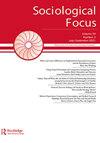Deliberative Interdependence: A Durkheimian Approach to Promoting Collaborative Learning in Diverse Classrooms
Q2 Social Sciences
引用次数: 0
Abstract
ABSTRACT As institutions of higher education have become more diverse over the past several decades, building a strong sense of community in the classroom has emerged as a core moral and pedagogical imperative to make students from all backgrounds feel welcome and promote their academic success. In this paper, I argue that the pedagogy underlying the impetus for community building in the classroom is premised on a problematic understanding of the type of bonds that connect students in a genuinely diverse classroom. In Durkheimian terms, these bonds are more akin to organic solidarity (bonds by virtue of mutual reliance) than mechanical solidarity (bonds by virtue of shared cultural and moral beliefs). Instead of community building, I propose deliberative interdependence as a more effective model for generating collaborative learning in diverse classrooms. I illustrate how to apply this model through innovative learning and assessment methods and draw on student course evaluations to document their effectiveness.慎重的相互依存:促进多元课堂协作学习的杜克海姆方法
ABSTRACT 随着高等教育机构在过去几十年中变得越来越多元化,在课堂上建立强烈的社区意识已成为一种核心的道德和教学需要,以让来自各种背景的学生感到受欢迎,并促进他们的学业成功。在本文中,我认为推动课堂社区建设的教学法是建立在对真正多元化课堂中学生之间联系类型的错误理解之上的。用杜克海姆的话来说,这些纽带更类似于有机团结(因相互依赖而产生的纽带),而不是机械团结(因共同的文化和道德信仰而产生的纽带)。与其说是社区建设,我建议将审议性相互依存作为在多样化课堂中开展协作学习的更有效模式。我说明了如何通过创新的学习和评估方法来应用这种模式,并利用学生的课程评价来证明其有效性。
本文章由计算机程序翻译,如有差异,请以英文原文为准。
求助全文
约1分钟内获得全文
求助全文

 求助内容:
求助内容: 应助结果提醒方式:
应助结果提醒方式:


